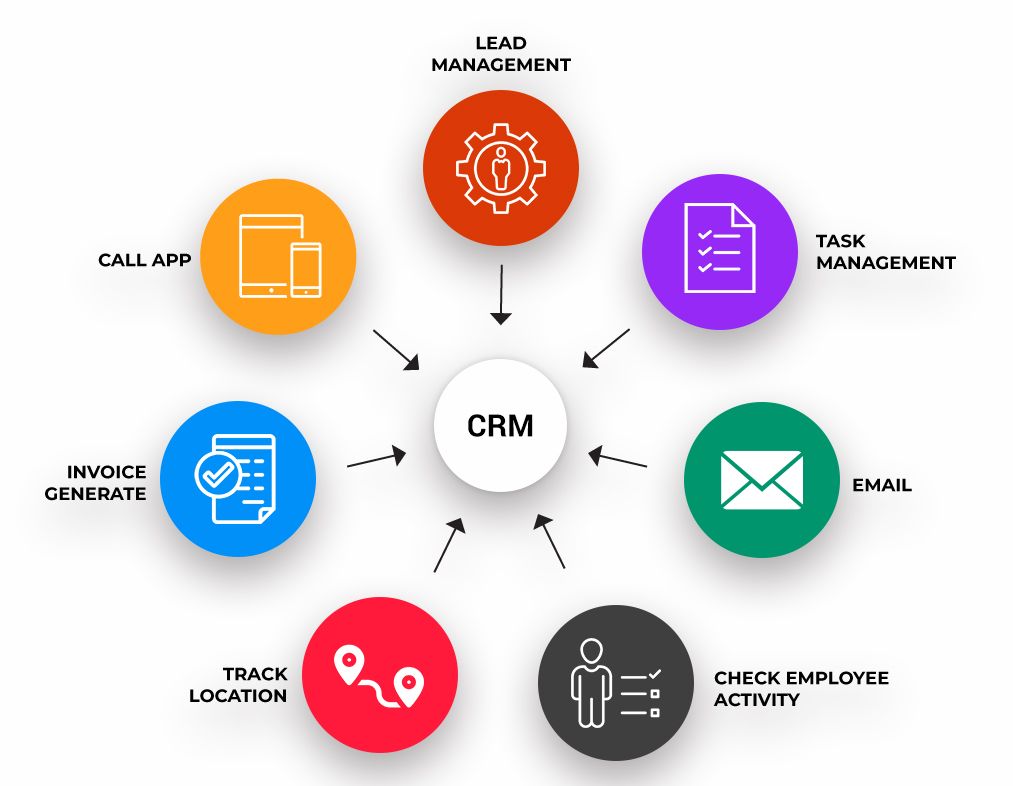
Contents
What is CRM? Customer Relationship Management Explained
Small businesses are turning to customer relationship management systems (CRM) to better understand customer wants and needs. CRM systems, used alongside data warehousing, eCommerce applications, and call centers, allow companies to gather and access customer information to anticipate customer preferences and build customer loyalty.
What is CRM?
Customer Relationship Management is a technology designed to help businesses manage customer relationships and interactions. It’s a system that helps build a database of customer information, stay connected to customers, and streamline processes.
A CRM system automates and aggregates customer touchpoints, simplifying work and allowing teams to focus on relationships. It applies not only to customers but also to colleagues and suppliers.
Who is using CRM?
CRM systems benefit everyone in the organization. They provide direct access to shared information for sales, customer service, business development, marketing, HR, and other teams, facilitating collaboration and maintaining a visible record of customer interactions.
Here are some use cases for CRM systems:
Identify customer segments
Enable marketing teams to identify and target your best customers, manage marketing campaigns, and generate quality leads.
Optimize information shared by multiple employees and streamline processes, improving account and sales management while maintaining consistent customer experience.
Strengthen individual customer relationships
Develop individualized relationships with customers to improve satisfaction and maximize profits. Leverage sales and interaction data to identify and provide top-quality service to the most profitable customers.
Make connections
Provide employees with the information and processes needed to understand customer needs and build relationships with the company’s customer base and distribution partners.
Why is CRM important?
91% of companies with more than 11 employees use a CRM system. If you’re not considering CRM systems for your strategy, you’re already behind.
A CRM increases customer retention and enhances profits, but its impact goes beyond that:
Organization and operations
An organized customer information system improves business efficiency, automates tasks, enables integration with other analytics platforms, and allows teams to focus on more complex initiatives.
Education
A CRM helps you learn more about your customers by organizing data points like purchase history, communication preferences, and feedback. It provides insights for sales, customer service, and marketing teams, avoiding duplication, incorrect claims, and vague references.
Collaboration
CRM software facilitates collaboration within and beyond the organization, allowing the sharing and integration of customer information with outside companies, creating a more customer-friendly experience.
Analytics and optimization
A CRM analyzes customer data to improve satisfaction, reduce churn, and increase sales. It provides pattern recognition and integrates with other analytics platforms for better visibility into customer interactions.
How to choose a CRM for your business
Ready to explore integrating a CRM into your business operations? Follow these steps to choose the right CRM:
1. Identify business needs
Review your operations, sales pipelines, and daily activities to identify potential problems and opportunities that a CRM can address.
2. Review CRM features and tools
A CRM should include contact management, campaign automation, and lead tracking tools. Ensure compatibility with third-party tools and explore add-ons and different tiers based on your business needs.
3. Explore CRM trials
Take advantage of free trials or onboarding walkthroughs to assess features, user interface, and customization options. Involve team members in the evaluation process.
A CRM is a complex but worthwhile investment
Choosing a CRM requires thorough research and testing. Consider your budget, revisit your business plan and strategic milestones, and determine if a CRM is essential for your current needs and business growth.
Hello!
I’m Andrew Brooks, a seasoned finance consultant from the USA and the mind behind phonenumber247.com.
My career is built on a foundation of helping individuals and businesses thrive financially in an ever-changing economic landscape. At phonenumber247.com, my aim is to demystify the complex world of finance, providing clear, actionable advice that can help you navigate your financial journey with confidence. Whether it’s personal finance management, investment strategies, or understanding the nuances of market dynamics, I’m here to share insights and tools that can propel you towards your financial goals.
Welcome to my digital space, where every piece of advice is a step closer to financial clarity and success!
